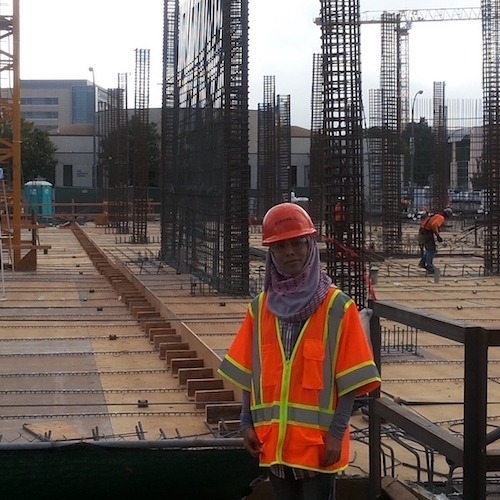The Private Sector Has A Critical Role In Global Peace
 To achieve peace we need action across the board – and the private should no longer be viewed solely as a donor of funds. We have much more to offer.
To achieve peace we need action across the board – and the private should no longer be viewed solely as a donor of funds. We have much more to offer.
What does the private sector have to do with world peace? Well, a lot. That was my conclusion from the UN Global Compact event held in Dubai towards the end of 2016 with some 200 people from all corners of the globe.
Until fairly recently, the UN looked at the private sector purely as donors of funds. But increasingly there is recognition that far more can be achieved with the private sector as a partner, bringing particular skills and expertise to particular challenges.
 Throughout the day, these complementary skills came through. I was a speaker and proud to be alongside many others doing such amazing things to help global peace. These are the insights I took from the day.
Throughout the day, these complementary skills came through. I was a speaker and proud to be alongside many others doing such amazing things to help global peace. These are the insights I took from the day.
I was struck with Camilla Schippa, director at the Institute for Economics and Peace, who talked about ‘what constitutes peace?’ She said that too often peace is seen as the absence of violence or fear of violence – a passive, negative perspective. To achieve peace we have to turn that around and look at what positive actions we need in place from a sound business environment to free flow of information.
We had an extraordinary session with stories from around the world about how the private sector is leading or taking part in projects that are bringing change. Many of these stories were about helping refugees – the story that stuck in my mind was how the German business community has really welcomed their refugee influx and are working with these immigrants to help them get jobs and integrate with the community.

My fellow panellist, Nicola Malick from NRS International, talked passionately about the products they are developing to solve numerous issues in conflict areas (she’s written a great blog on her perspective of the UN event). She talked about the development of fire retardant tents which are now being rolled out in Syrian camps. The fire on Lesbos makes the point about how important these are – can you imagine what it was like for these refugees finally reaching some kind of safety and then having their shelter wiped out by fire?
For a picture of just what it is like to live in these camps, Patrick Kingsley writes movingly for the Guardian, describing the horrors on the Ugandan/South Sudan border “Since the surge began, food rations have been slashed, halving the calorie intake for all but the most vulnerable. The UN refugee agency’s funds are at only 20% of what they should be. Some reception centres are housing four times more refugees than their limit, leading to water shortages, and a cholera outbreak at one of the most overcrowded camps.”

The story that I shared on our panel, was about CTG’s work in South Sudan. We had earlier heard facts and figures about refugees – the average time a refugee spends in a camp is 18 years. For a baby born in a camp, that is their whole childhood. So one of the challenges – and where I think the private sector has a particular role – is in helping to create employment and micro economies. A World Bank report found that UN peacekeeping missions have a substantial effect on GDP, with annual growth rates nearly 2.4% higher in post-conflict countries where peacekeepers are present. And according to a report by the US GAO, dispatching UN peacekeepers to Haiti was eight times less expensive than fielding a comparable US mission.
If we can employ people locally and give them skills, almost certainly this will do more for peace than any hand-outs.
In Sudan, we have a food distribution contract – to deliver this we are employing local drivers. One of our skills is in having grass-root networks that we can mobilise in war-torn countries. I mentioned in a previous blog (Rural women are the key to transforming war-torn countries) that wherever we go, we aim to employ local women. It is extremely challenging in terms of finding these women, winning the support of their families and then our duty of care to ensure safety. However, employment for women is transformational for their families. The UN Foundation website mentioned above, says that women make up 30% of civilian, 10% of police, and 3% of military peacekeepers.
So what is the role of the private sector in peace? Here were my take-outs from the day
- To achieve peace, we need to create new economies and frameworks in many countries – the private sector can help with both
- The private sector is fleet of foot and innovative – use our skills and speed to bring change
- Employing local people is probably the biggest contribution that the private sector can make – we can go where government agencies struggle because of the risks. We need to do more of this
- And while the private sector’s skills are critical in this partnership, their financial contribution is still essential, as Patrick Kingsley’s article portrays so vividly
The UN Global Compact Day was inspiring, most of all because of the fantastic stories from Turkey to Indonesia, Brazil to Ukraine. It was a reminder that world peace may seem unachievable at times, but working together we can make it happen. And the private sector must play its part in innovation and employment.
I would love to hear from others where they feel the private sectors efforts are best placed in achieving the humanitarian agenda?



